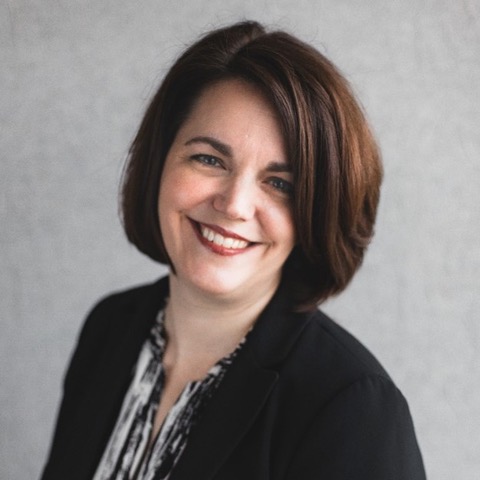If companies are serious about inclusion, then difficult conversations in the workplace are a must, according to Rockwell Automation’s Director of Culture of Inclusion and Diversity Michele Matthai and her colleagues.
Workplaces are desperately in need of workplace inclusion more than ever before. This means having difficult conversations when divisive and often polarising current events or topics have made it even more challenging. “We know that to be successful we need to work effectively in a culturally diverse environment and that starts by encouraging listening, learning and respect,” said Matthai, during a panel discussion that she recently led on Inclusive Workplaces in a Divisive World.
She was joined by her Rockwell Automation colleagues: Gary Ballesteros, Chief Compliance Officer; John Lohmann, Regional OEM Sales Director, Central Region; and Olivia Leak, Account Manager. They sat down and discussed what they have learned from navigating difficult conversations, breaking down barriers and building a more inclusive environment for everyone. They also addressed what had changed for them during 2020, in the midst of a pandemic, social unrest and an election year.

SUPPORT FOR BLACK COLLEAGUES
“I find myself right at the intersection of three of our most polarising biases. I’m young, I’m black and I’m also a woman,” Leak said. At the beginning, the social injustice movement was sometimes difficult for her to navigate. While she received an outpouring from co-workers and friends reaching out to ask how they could better support her as a Black woman, “I went through ebbs and flows of emotion,” she said. And it took time for her to process the movement and what she needed. “What we saw this summer wasn’t unique to 2020; it really was an ongoing problem, something that we’ve seen consistently.”
Leak said she wanted to respond to colleagues but didn’t know what to ask of them. After some reflection, she was able to better articulate her thoughts to the teams that supported her by the end of the summer. She identified key obstacles that she had experienced because of her diverse background and asked for more support in specific areas. “That really helped me navigate this new environment that’s now influenced my culture,” Leak said.
Ballesteros said he had always considered himself to be a good person, who treated everyone equally, regardless of sex or race. But this year made him realise he needed to do more. “It’s not good enough individually to be a good person. I feel like what this summer opened my eyes to is that for those of us who have some privilege in society and who are viewed as leaders, we have to go out and lead. This has to be something that is actively embraced,” Ballesteros explained.

Image credit: Rockwell Automation
TABOO TOPICS
Are there taboo topics or discussions that aren’t suited for the workplace? Not according to Rockwell Automation’s staff. “Lohmann used to think you should never talk about politics at work, but that has changed for him recently. “For me it feels like the volume has just turned up in every way. Part of my concern with the volume up so much is, I think, a lot of people can no longer see some of the progress we are making,” Lohmann said.
He believes those tough conversations and difficult topics need to come to the forefront, and he recommends approaching them by considering the human side of issues, not just the politics, and be wary of media that’s pushing more division. “It does feel like divisiveness is only getting stronger and happening to us more,” he said. While no topic should be off limits, “I do think perhaps pace matters”, Lohmann said. “If the team is new to difficult conversations, don’t start with the most difficult topics. Build some trust on the team first.”
CREATING TRUST
Before discussing difficult topics at work, Leak said that she takes time to consider the relationship at hand. The degree to which she’s willing to engage in a divisive topic is “based on the value that I place on the relationship and how I think it will benefit a future project or future opportunity or a future way to connect with that person,” Leak said.
By jumping into conversations without pre-checking herself and evaluating those factors, Leak said she has felt pulled into one-sided conversations. “Those conversations for me are extremely exhausting and they break the trust between myself and the other individual, and they don’t do anything for the working relationship,” she noted. “If I know there’s some opportunity to find some common ground, if I know that it will benefit decision-making or collaboration or the good activities and actions that we want to cultivate within our organisation, I’m absolutely willing.”
“We spend an awful lot of time at work. We put a lot of time and energy and effort into it, and it doesn’t feel right to me that we would divorce major societal impacts from our work lives,” added Ballesteros. “Life is just not that nicely siloed. I sincerely believe, and I’ve seen many instances of it, where diversity of thought leads to better decision-making.”

BUILDING BRIDGES
While it is important to lean into these difficult conversations, it can be intimidating. The panellists talked about basic principles and behaviours to help make those conversations easier. “A key thing is listening first,” Leak said. “You can tell when someone is just there to be heard.”
Rockwell’s leaders believe that expressing gratitude, humility and grace, and acknowledging the courage that it takes to come to a difficult conversation or divisive topic can go a long way. “My advice is always start with the intent and make sure your intent is for the right reasons. There will be moments when there’s some misalignment,” said Leak. “But again, finding those spaces to be curious, to demonstrate humility and grace and compassion toward the other person, I think that creates a bridge.”
COURAGEOUS CONVERSATIONS
Lohmann believes “assuming positive intent” is beneficial to all those involved in any type of discussions. “I really like this idea that inclusion is a journey and every single person is going to have a different journey,” said Lohmann. When he started these conversations more than 10 years ago, the idea that he needed to be perfect at it ultimately stopped him from pursuing those discussions with the type of honesty and fervour they needed.
Ballesteros’ advice on how to have courageous conversations, is simply that “you have them. Period. That’s it. That’s the first big step. You have to work up the courage to actually have them”.
Click here to find out more about Rockwell Automation.








































